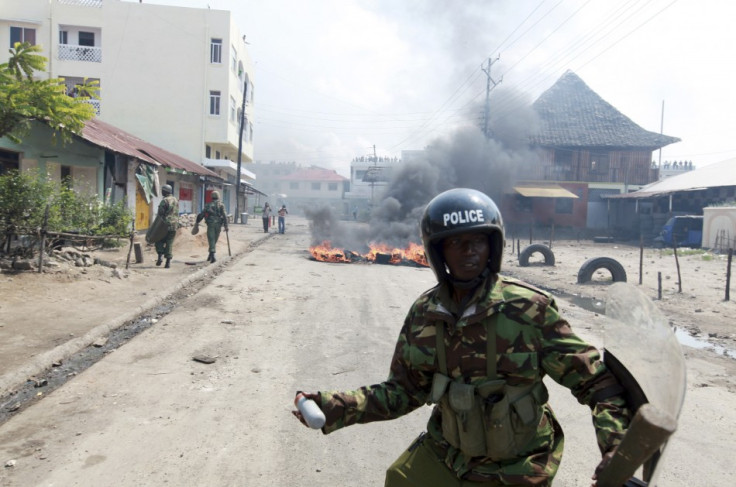Kenya: Riots and Clashes in Mombasa Intensify after Death of Islamic Radical Aboud Rogo Mohammed

Protesters have been fighting with police for a second day in Kenya's port city of Mombasa, following the killing of radical Islamic cleric Aboud Rogo Mohammed.
Churches have been attacked and shops looted in the mainly Muslim city, with hundreds of Rogo's supporters chanting slogans and throwing stones.
At least 14 people have been injured in the clashes according to a local human rights organisation, which alleges that the Islamic preacher was killed by Kenyan police.
"The riots have started again," Khalid Hussein, of the Muslims for Human Rights group, told AFP.
Police have dismissed the claim that the riots have resumed, with regional chief Aggrey Adoli telling reporters that the protests are under control.
"A group of youth has been throwing stones here and there, but our officers are there to contain the situation," he said.
Backlash
At the time of his death, Rogo was on a US and UN sanctions list for allegedly backing the al-Shabaab terror group, linked to al-Qaida.
In January he was charged with possession of guns, ammunition and detonators, having previously been a suspect in the 2002 bombing of an Israeli tourist hotel near Kenya's capital, Mombasa.
The victim was driving with his wife, father and children when gunmen shot at his vehicle, killing him instantly.
Rogo's death triggered an immediate backlash from the Muslim population, which took to the streets in protest. One person was hacked to death while cars were torched, shops were attacked and five churches were looted or set on fire.
The Islamist Muslim Youth Centre (MYC), where Rogo was seen as a spiritual leader, has joined Muslims for Human Rights in accusing the Kenyan authorities of killing Rogo.
"Our beloved Sheikh Aboud Rogo... was murdered by the kuffar (unbelievers) as part of Kenya's policy of extra-judicial killings against prominent Muslim activists," the MYC said Tuesday in a statement.
Al-Shabaab has urged Kenyan Muslims to "take all necessary measures" to protect their religion. The group said in a statement:
"Muslims must take the matter into their own hands, stand united against the kuffar (unbelievers) and take all necessary measures to protect their religion, their honor, their property and their lives from the enemies of Islam."
© Copyright IBTimes 2025. All rights reserved.






















